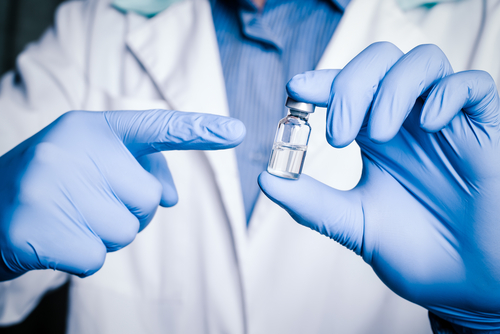Real-world Data Could Replace Placebo Groups in DMD Clinical Trials, Study Indicates
Written by |

Real-world and natural history data could be used to supplement, or perhaps replace, the use of a placebo in future clinical trials in people with Duchenne muscular dystrophy (DMD), a new study suggests.
The study, “Suitability of external controls for drug evaluation in Duchenne muscular dystrophy,” was published in the journal Neurology and was conducted by the Collaborative Trajectory Analysis Project.
In clinical trials of DMD and other conditions, some participants are given an active experimental therapeutic, while others receive an inactive placebo. This allows researchers to control for the placebo effect, ensuring that the tested treatment is actually effective.
However, including a placebo group means recruiting more participants, which can impose substantial logistical challenges in a rare condition such as DMD. Ethical quandaries related to giving trial participants a placebo, which by definition is not supposed to help treat their disease, also are relevant.
Using real-world and natural history data (RWD/NHD) could be beneficial to contextualize, supplement, or even replace placebo groups in clinical trials. Conceptually, RWD/NHD refers to data collected outside clinical trials, particularly with regards to how a disease progresses in the absence of treatment.
However, concerns surrounding the use of RWD/NHD to replace placebos also exist. The concern is that the setting of a clinical trial may be different enough from the “real world” that fair comparisons cannot be made. As an example, patient characteristics may differ for people who enroll in clinical trials, compared to the general population of patients with a disease, which can confound the results.
Here, the researchers compared data from 383 people with DMD taking a placebo in one of six clinical trials (NCT01865084, NCT00592553, NCT01826487, NCT01153932 and NCT01462292, and NCT01254019) with RWD/NHD collected for 430 DMD patients from the U.S. and Europe taking part in five registries. Their intent was to determine if the two sources differ meaningfully.
Mean age of patients did not vary significantly across the different studies or registries, although participants in RWD/NHD sources were generally older by one to two years than patients taking a placebo in trials.
Specifically, the scientists focused on six-minute walk distance (6MWD). As the name suggests, this test of physical function, measures the distance a person can walk in six minutes. The team assessed 6MWD at baseline (the start of trials, or of data collection) and 48 weeks later.
Baseline 6MWD scores were mostly similar between the RWD/NHD and the placebo group data. Comparing different sources, most values were within 30 meters (almost 33 yards).
At 48 weeks, differences in average change in 6MWD between the RWD/NHD and placebo groups ranged from 19.4 meters (21 yards, with smaller declines in RWD/NHD) to 19.5 meters, indicating larger declines in RWD/NHD. Yet, none of these differences were statistically significant, which suggests that, in terms of 6MWD, placebo data tends to be comparable to RWD/NHD.
Again, the differences were not significant even after making statistical adjustments to account for factors known to affect 6MWD in people with DMD, such as age, steroid treatment, and other functional tests.
“We found that changes in 6MWD over 48 weeks were strikingly consistent between these settings when subjected to equivalent inclusion/exclusion criteria and after adjustment for multiple known prognostic factors,” the researchers wrote.
“This rigorous study establishes a strong foundation for using natural history data as a substitute for placebo control in clinical trials and as a comparator to determine the effectiveness of prescribed drug treatments versus standard of care treatment,” Craig McDonald, MD, a professor at the University of California Davis and a study co-author, said in a press release.
Francesco Muntoni, PhD a professor at University College London added: “The results of this landmark research effort have profound implications for clinical research in DMD and potentially many other rare diseases. We applaud cTAP for supporting this research effort and look forward to sharing these insights with all of the stakeholders in DMD research including regulators, industry, clinicians and patient advocates.”
Yet, while the study supports using RWD/NHD in DMD studies, the decision to do so “would need to be evaluated on a case-by-case basis,” the scientists added. Also, “beyond the present study of 6MWD, similar assessments are needed for the consistency of additional outcomes important to DMD drug development.”





